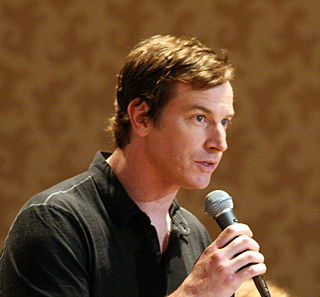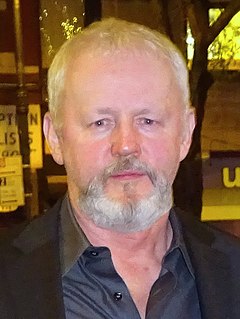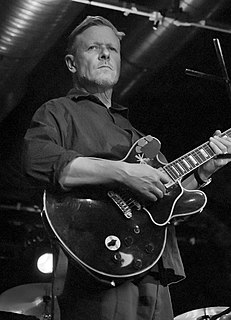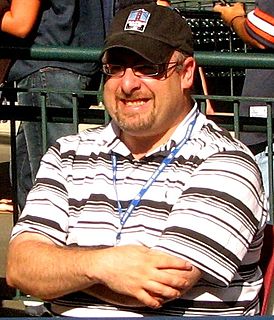A Quote by Andrew Lloyd Webber
And it sort of jogged a memory of something that I read at school and I read it, and I thought God this is it. So you never can tell. I could find something this afternoon.
Related Quotes
It was a sort of organic thing. I never went, 'I must be an actress.' I thought, 'I think I could do this. I think I could be good at this.' I would just get sort of hungry when I read something I thought I can do well, whether it was in books or in scripts or if I saw a certain movie. It sort of happened quite naturally.
I first read 'Lolita' when I was 16, which I think is a little bit young. But it was a thrilling and disturbing read because it was the first time I really sensed that you could have an unreliable narrator, that you didn't have to sort of tell the truth in a narrative, that there could be something deeper and richer and more complicated going on.
I read one time that I am permanently banned from Yankee Stadium and that I could never ever go back. This article mentioned, supposedly, that I did something in the early 2000s at Yankee Stadium, and I got arrested, and supposedly, allegedly, I went to jail for something that I did. I read that about myself one time and I thought that was pretty fascinating.
That I can read and be happy while I am reading, is a great blessing. Could I have remembered, as some men do, what I read, I should have been able to call myself an educated man. But that power I have never possessed. Something is always left--something dim and inaccurate--but still something sufficient to preserve the taste for more. I am inclined to think that it is so with most readers.
Justice. To be ever ready to admit that another person is something quite different from what we read when he is there (or when we think about him). Or rather, to read in him that he is certainly something different, perhaps something completely different from what we read in him. Every being cries out silently to be read differently.
I never could read Foucault. I find philosophy tedious. All of my knowledge comes from reading novels and some history. I read Being and Nothingness and realized that I remembered absolutely nothing when I finished it. I used to go to the library every day and read every day for eight hours. I’d dropped out of high school and had to teach myself. I read Sartre without any background. I just forced myself and I learned nothing.








































